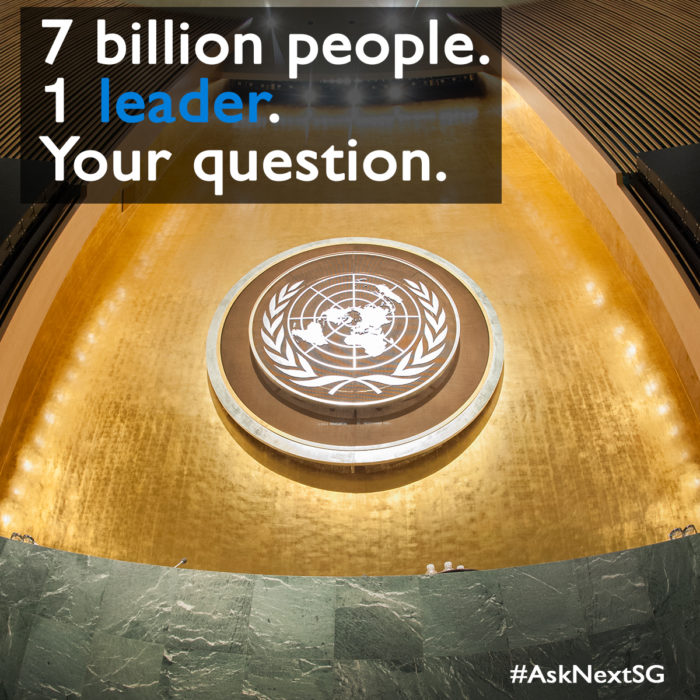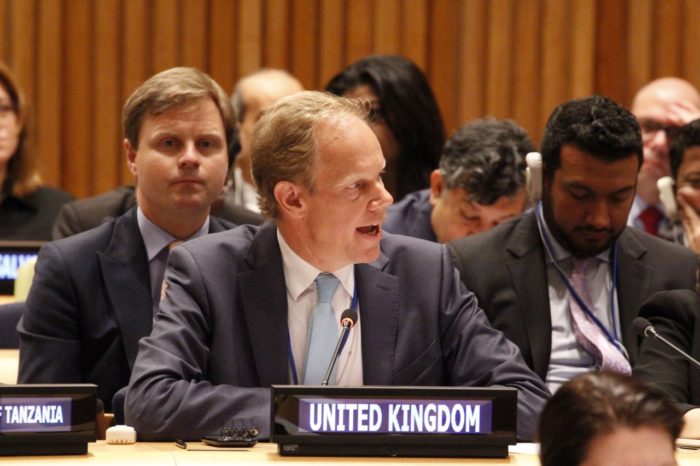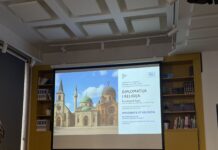Six years ago to the day, I signed into Twitter for the first time. At the time I was studying for exams and though I had a budding interest in the United Nations (UN), the concept of diplomacy was frankly pretty alien.
Little did I know, about a half decade later, I would sit at the helm of digital media for the UK Mission to the UN. Now I spend my days advancing a new kind of diplomacy. One that mostly fits in 140 characters and is frankly pretty alien to quite a few diplomats at the UN. We simply call it #digitaldiplomacy. Hashtag included.
Through #digitaldiplomacy I have had a bird’s eye view of the UN through Twitter. On any given day, I have multiple screens tuned into live feeds, Periscopes, and the latest trends from the center of the foreign policy world. From the history making #GlobalGoals to the horrific terrorist attacks in Pariss, I’ve watched governments and the people they serve interact on the most important issues of our day.
But, what I saw during the historic open hearings for the next Secretary-General of the United Nations, was a first.

For those that aren’t familiar with the process, the UN was in uncharted waters. For the previous 8 Secretary-General selections, there was no Q and A session between the candidates and the membership. CVs weren’t circulated in advance. Quite honestly, most of the time, the world didn’t even know who was in the running for one of the world’s biggest and toughest jobs.
So the UN was literally making history in that room. And yet the questions being asked were too often reminiscent of lines from a history book. An old one. Country after country (we call them Member States in the halls of the UN) had the opportunity to ask any question of #nextSG candidates at the UN, and yet too many questions were mundane and repetitive.
This baffled me.
So with the help of @MatthewRycroft1 and a team that genuinely believes in transparency, we brought Twitter and its 320 million users into the room.

When British Ambassador Matthew Rycroft took the floor to ask questions on behalf of the United Kingdom on day one, he asked a question that came from his Twitter feed. On days two and three, he did the same. We worked hard behind the scenes to get as many questions as we could and tell the world that their opinions and their questions mattered.
What we did wasn’t a gimmick. The entire room seemed to notice that the Twitter questions were often times the tough questions that needed to be asked. How can we make the UN more efficient? How do we make sexual abuse by peacekeepers a thing of the past? How do protect the human rights of people displaced by conflict?
We’re not on Twitter just for the sake of being on Twitter. We of course robustly communicate how the government works for the UK at the UN. But it’s so much more than that.
Clearly we can engage with people in ways that were simply impossible 10 years ago. And so we do. If one of those people can make an impact, we would be foolish to ignore it. Even when it comes to selecting the leader of the United Nations.
When Ambassador Rycroft asked the first question, you could hear audible gasps in the room. These questions were supposed to be reserved for people commonly called ‘Your Excellency’, not ‘@CleverestCookie’ or ‘@Lauderish’. One Twitter user summed it up with a single word: “Brave”. That’s when I knew we were shaking things up.
By the end of the session, diplomats, journalists, academics, and Twitter personalities were waiting for Ambassador Rycroft’s next set of questions. Not only were his question a dose of what he called the “UN catching up with reality,” but it was possibly the most genuine part of the hearings.
The UN works for the 7 billion people on the planet. To hear from some of those 7 billion people that didn’t wear a suit and sit in front of a name plate in a chamber was simple, but somehow amazing.
When the members of the Security Council go into the chamber to determine which candidate goes up for approval in the General Assembly, perhaps they’ll remember some of those people that showed an interest in finding a leader that works for them. I certainly know the UK will.

















